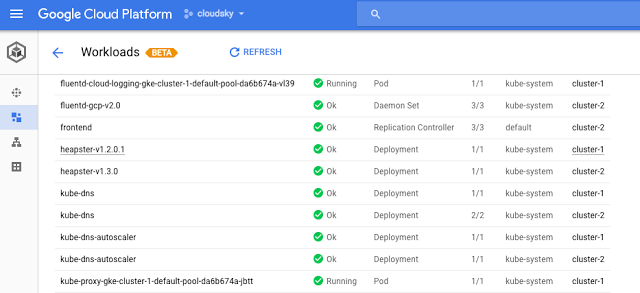
Google is updating its Container Engine with the latest open source release of Kubernetes today. The Google Container Engine is powered by Kubernetes, and enables users to deploy, manage and scale containerized applications.
Kubernetes 1.7 was announced last month with a big focus on extensibility and security.
“Container Engine is one of the first commercial Kubernetes offerings running the latest 1.7 release, and includes differentiated features for enterprise security, extensibility, hybrid networking and developer efficiency,” Aparna Sinha, group product manager for Container Engine wrote in a post.
With Kubernetes 1.7, Container Engine is adding a number of new security enhancements including the Node authorizer, the Kubernetes NetworkPolicy API, and HTTP re-encryption.
On the extensibility side, Container Engine is being updated with the beta version of API Aggregation, which extends the Kubernetes API with customer APIs; the Dynamic Admission Control in alpha clusters; and an improved Custom Resource Definition API.
Other features include: GA support for all private IP addresses, internal load balancing beta, source IP preservation, the ability to run stateful workloads, and automation features such as auto-repair and auto-upgrade.
In addition, the company is providing an update to the Container Engine UI to improve debugging and troubleshooting. The new UI is expected to roll out later this month.
“At Google Cloud we’re really proud of our compute infrastructure, but what really makes it valuable is the services that run on top. Google creates game-changing services on top of world-class infrastructure and tooling. With Kubernetes and Container Engine, Google Cloud makes these innovations available to developers everywhere,” Sinha wrote.





